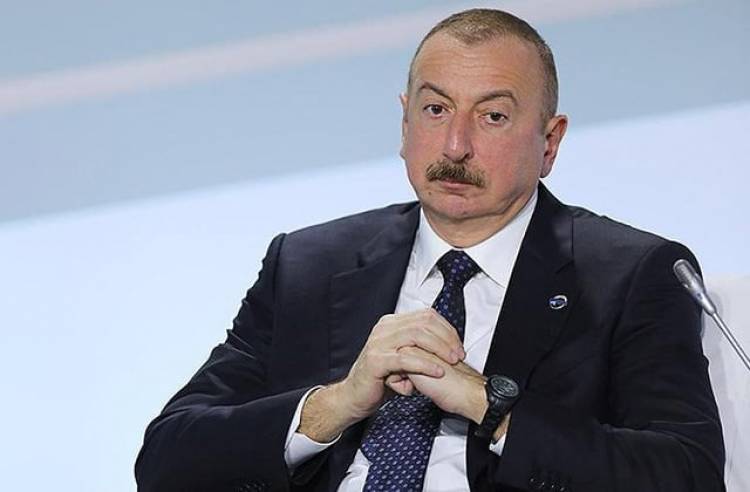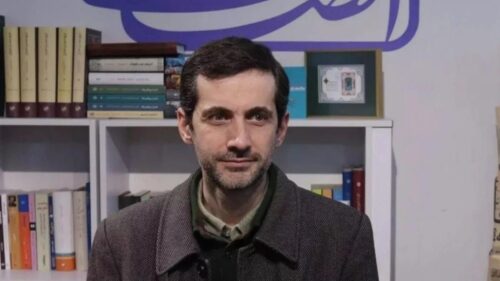
Eurasianet: Aliyev has tossed a diplomatic grenade into the Armenian-Azerbaijani peace process
Azerbaijani leader Ilham Aliyev appeared to ratchet up tension in the South Caucasus by unexpectedly reviving a demand for extraterritorial rights on a land corridor connecting Azerbaijan proper to its Nakhijevan exclave across Armenian territory, Eurasianet writes.
But some experts in Baku believe that the issue can be managed. Aliyev surprised regional analysts by seemingly tossing a diplomatic grenade into the Armenian-Azerbaijani peace process during an early January interview with Azerbaijani journalists. He repeatedly referred to Armenia as “fascist” and restored the issue of what is known as the “Zangezur corridor” to the top of the negotiating agenda. In the months prior to Aliyev’s comments, both sides had sent signals that a peace deal seemed close.
As noted, last August Armenian and Azerbaijani officials had set aside the Zangezur issue, saying the two countries would first finalize a peace deal, then return to the corridor matter.
From Armenia’s standpoint, the issue was problematic for two reasons; one, officials in Yerevan did not want to surrender sovereignty over the land route connecting two Azerbaijani territories; and two, Armenia was leery of allowing Russia to act as a guarantor of stability along the corridor. Yerevan’s relationship with Moscow has soured since Azerbaijan inflicted a decisive defeat of Armenia in the Second Karabakh War, which ended in late 2023. As noted, many Armenians believe Russia betrayed their country by not fulfilling treaty obligations to defend Armenian sovereignty. A 2020 agreement had enshrined a Russian peacekeeping role over the “Zangezur corridor”, but the August bilateral decision to defer the issue effectively froze Moscow out of any future presence. Russian officials at first bitterly complained about the Armenian-Azerbaijani move to defer Zangezur but eventually backed off after Iran forcefully supported shelving the corridor issue. In recent months, as Armenian-Russian relations have continued to spiral downward, the Armenian government’s interest in reducing the Russian presence in the country has taken on increased importance.
Aliyev’s revival of the Zangezur issue doesn’t imply that Baku wants Russian peacekeepers along the route, independent analyst Shujaat Ahmadzade told Eurasianet. “I think Azerbaijan is equally unhappy with [the idea of] Russian control [of the Zangezur corridor],” Ahmadzade, an expert in South Caucasus affairs, said.
Aliyev’s early January interview served as a reminder to Armenia that while Zangezur may have been deferred, it would not be forgotten by Baku. At the same time, Ahmadzade indicated that there was potentially a certain amount of flexibility in Baku’s approach on the issue. Zangezur, in Baku’s view, is linked to the broader issue of expanding regional trade networks, he added. Over the past year, Azerbaijan has actively pursued projects with other neighboring states to boost East-West trade via the Middle Corridor route, including the restoration of a railway with Georgia and an ambitious plan with Kazakhstan and Uzbekistan to export electricity. “There are three tracks [in the bilateral dialogue] – a peace agreement, borders, and connectivity – that both countries have disputes in, yet connectivity is the only space over which Armenian-Azerbaijani bilateral negotiations have not begun,” Ahmadzade noted.
“I think at this point the parties are trying to recalibrate their stakes over this matter,” the expert noted. He believes Azerbaijan wants to explore unblocking all bilateral connectivity routes. As for Zangezur, Azerbaijan doesn’t necessarily insist on Armenia sacrificing complete sovereignty over the corridor; Baku’s bottom line is it wants Azerbaijani vehicles traveling on the corridor between the mainland and Nakhijevan to move freely without any inspections. “I think this is where Armenia is resisting,” he said.


